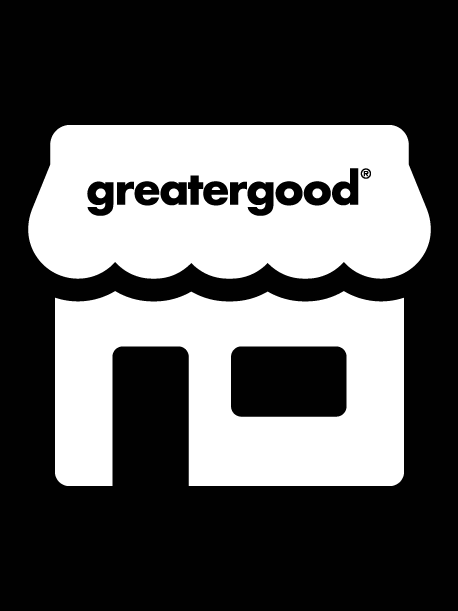This week we’re chatting with our trusted food advisor Jane Milton, an independent food consultant with over 30 years industry experience and a proven track record in helping food businesses thrive. Jane is extremely well known, connected, informed and respected within the food and drink industry and has also become a trusted advisor to a selection of the Dragons’ Den investors.
With such a wealth of experience and knowledge at our fingertips we found it hard to strip our conversation down to just 10 questions!
Here Jane chats with us about her expertise, challenger brands, trends for 2019 and an untapped potential in tea.
Can you tell us a bit about your consultancy, the kind of clients you work with and how you help them?
I have worked in the food industry for 32 years and been running my consultancy for 22 of those. It has evolved to reflect changes in the market, technology and from listening to customers and giving them what they need. The heart of the business is my strategic growth planning for food businesses and my incredible network. I have a very robust network of people with expertise in every single area of the food business from concept to fork and delight in connecting people to those they need in order to grow their food business. I just love connecting people. My customers are typically people who have been trading a few years as a minimum, they have BRC Certification or Salsa as a minimum, they have a team of at least 5 people and they are looking to grow their business and need guidance to put systems and procedures in place to allow them to achieve that growth. We work with businesses to identify who their current and future customers are and what products they can add to their range to grow their share, win new markets or move into new categories. We also look at who they should be selling to and can introduce them to buyers or help them prepare their case to show to the retailers.
What do you see as the main barrier to entry for your clients, what are the recurring problems you see in trying to bring a product to market?
Often businesses have been operating with skeleton staff until the point of real growth, so knowing what skills you need, finding the right people, making sure they receive proper induction training and ongoing support can often test entrepreneurs. Sometimes people know they need help but have not made provision for the additional cash flow that will require. We have been helping people overcome these and many more problems for years, so we can quickly see where they will need help having chatted to them and then we have systems, templates and ways of approaching each area that can help them get what they need and retain their own business’s unique proposition.
We understand that you were the first Tea Association of Canada UK certified sommelier – what was your experience like in gaining that qualification?
I was the first person in the UK to be Certified by the Tea Association of Canada as a Tea Sommelier. It took me over 2 years of classes, exams and blind tastings but I have found it invaluable and would recommend it to anyone who wants to grow their knowledge of teas, tea growing areas, food and tea pairing and so much more. The class was very international and I loved the different experiences and knowledge that meant we all had. Every week that classes were running I had a live tutorial and that usually began between midnight and 2am because of the Canadian time difference, so you had to be keen! I often use what I learn in advising clients on teas to use in soft drinks, ice creams or add to sauces and have also found having to taste and talk about flavours, astringency, colour viscosity of teas in classes has really retuned my tasting skills again. I have also developed a range of 3 chai’s which are naturally sweeter because of the spices in them.
You have mentioned before there is huge potential and a gap in the market for tea – where do you see that potential heading?
I do still think we are only scratching the surface with tea in the UK… even though many of the original plantation owners in places like Sri Lanka were Scottish or English. I don’t think we explain teas on offer to customers well – usually someone rattles off a list of teas and people say ‘English Breakfast’ or ‘Earl Grey’ as they recognise them, where really they should be treated more like wines where you are asked what sort of wines you like and then suggestions are made, or where they tell you what tea would be a good pairing with the food you have chosen. As more people switch away from sugar and often from alcohol, there are huge opportunities for soft drinks too and for non-alcoholic cocktails with a very diverse range of flavours. There is a lot more besides that too which could be done to help consumers make more of tea. Loose teas are making a renaissance as people move away from tea bags with plastics in them, so this is a good opportunity.
2018 has been a particularly thriving year within F&B with trends like surplus food, no and low alcoholic beverages, plant-based and ‘gut healing’ products entering the mainstream. What trends do you see on the horizon for 2019?
Many of those you list will stay on for 2019 too and will just grow – plant-based will continue to grow and as more chefs and developers understand alternatives to meat, things will get more interesting in that market. Brain health is set to become the next topic as attention has turned to mental health but also as people are becoming more aware that for their brain to function better, certain foods can help that process. So we will see that come into the fore more. Functionality is also becoming a stronger trend – people don’t just want a snack they want a high protein snack or sweet treat so confectionery and savoury snacks with added ingredients so it can do more for you, will grow. Snacking will continue to be a growing opportunity as busier lives continue to necessitate eating on the move, on the commute, at your desk etc…
This year has also seen somewhat of a battle between meat products and the plant based movement with 28% of Brits having cut down on meat consumption in the past 6 months.Where do you see this movement heading, and do you think there is still opportunity for new products within the meat market?
Plant based is here to stay but I think that meat is already beginning to respond to that. Many people are opting to eat less meat (particularly red meat) but to eat better quality meat when they do, so brands and butchers that can demonstrate provenance and animal welfare standards will win out in this market. There is also still a place for innovation – meats that require minimal prep but deliver well on flavour, texture and health credentials so whether that is scratch meal innovation or new cuts or different ways of rearing animals, we’re always going to have people who have meat in their diets, so there will always be opportunities for good products.
With so many new and innovative products entering the market, how do you think existing brands can remain fresh, stay appealing and stand their ground against challenger brands?
We are seeing a flurry of larger brands from PepsiCo to Unilever and even retailers like Sainsbury’s, set up programmes to ‘help and nurture’ challenger brands. This can be advantageous to the challenger who gets a foot in or mentorship etc but it also gives the larger brands access to faster creativity than they can manage within their own brand constraints and fresh thinking and a raft of new products that they can buy their way into in the longer term. This is how many larger brands are responding.
You’ve also become a trusted advisor within the Dragons’ Den team – can you tell us a little bit about some of the projects you’ve worked on?
I was very fortunate to meet one Dragon 7 years ago and be asked to work with them to help grow a food business with the aim of selling it. Through them I have worked with 2 more Dragons, and it is great to get to work alongside these dragons and observe how they do business, where they focus and how they motivate others too. They are all great at opening doors and using connections to help businesses, so it has been great to be in on the ground in these projects. I often work with the businesses once the Dragon has bought in and before the programme is aired making sure we have a solid, robust website, clear messaging, a strong sales base etc and then after that working with them regularly helping shape the strategy and direction, identifying new opportunities for products or customers and connecting them to people who I think can help them achieve what they need. It can be very rewarding work and I feel very privileged to have had the opportunity to work closely with the dragons on these businesses.
With the food and beverage industry constantly moving at such a fast rate, how do you stay up to date with industry news, what are you reading, how do you stay in the know?
My network plays a big part in that – when I get a new project if I need to understand an opportunity or a market I can always ask someone who knows more than me. I read a lot too – trade magazines and digital articles, I have some google searches that allow me to follow threads daily and keep abreast of thought leadership and developments. I bring a large group from my network together 3-4 times a year to connect them over lunch but also so I can catch up with many of them and tap into conversations there. I network, I have a few meetings each week with new contacts, I connect to a lot of people on LinkedIn and follow others on social media so I can develop my understanding and keep abreast of change. I am committed to being a life long learner so I am always studying something – at the moment a lot around running an online business, so I can reach more people and help their food businesses, but always something. I also eat out a lot, I am lucky to get a lot of invitations to launches, or to talks/meals where I can deep dive into a particular cuisine. Because I don’t sit in just one food business but work with many I am constantly updating what I know and learning about things in more depth or reviewing a category for a client etc, it keeps me up to date and allows me to see trends emerging.
And finally – what advice would you give a startup / founder looking to launch a product into the food and beverage market?
Don’t underestimate the work involved, it is challenging but very worthwhile. Budget carefully make sure you have enough to do a good job but equally only spend money when you have to, take advantage of all that is on offer to you and save spending for things you really don’t have the expertise internally or from a free source. Be realistic, it does take time to start a business and grow it. Spend as much time and money on understanding the market before you begin as you can, don’t be afraid to walk away if there is not a unique opportunity – sometimes it may be the second idea you come up with or the third that you should take to market.
Looking for a food and drink brand building agency?
We’ve created brands, packaging design, campaigns and more for hundreds of scaling challenger brands across FMCG.,

Greatergood Brands®
Daniel Hinde is the Founder & Creative Director of Greatergood Brands. Daniel has over 20 years commercial experience building brands for global household names and disruptive challenger brands.
Sign up to our building better brands newsletter
Free insights for scaling brands









